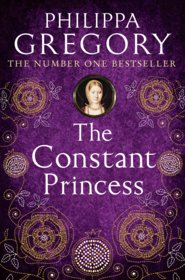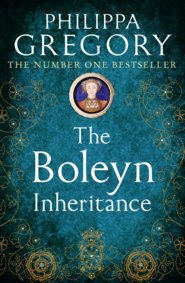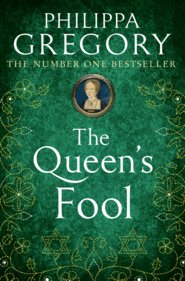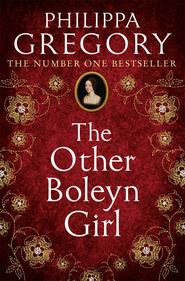По всем вопросам обращайтесь на: info@litportal.ru
(©) 2003-2025.
✖
Earthly Joys
Настройки чтения
Размер шрифта
Высота строк
Поля
He looked at her and saw the coat she was holding for him. ‘I thank you,’ he said courteously. ‘I’ll send you word. I don’t know what is happening, I don’t know what he wants me for. These are dangerous times for him. I must go at once.’
Elizabeth felt her village-based view of the world shudder under the weight of great events which would now impinge on her life. ‘I didn’t think these were dangerous times. How are they dangerous?’
He glanced at her quickly, as if her ignorance surprised him. ‘All times are dangerous to men with great power,’ he explained. ‘My lord is the greatest in the land. Every day he faces one danger or another. If he sends for me I go without question and I make no plans other than his will.’
Elizabeth nodded. There was no arguing with a man’s duty to follow his lord.
‘I’ll wait till I hear from you then,’ she said.
John kissed her forehead in that passionless meaningless gesture which seemed to have started with their betrothal and hung over them still. Elizabeth curbed her impulse to turn up her face and kiss him on the lips. If he did not want to kiss her, if he did not want to lie with her, then it was not the part of a good wife to complain. She would have to wait. She would have to do her duty by him, as he did his by his lord.
‘Thank you,’ John said, as if she had obliged him in some little courtesy, and went out to saddle his horse, mounted the animal and rode him from the back of the cottage to the village street. Elizabeth was at the doorway, her head high; none of the village gossips would know that her husband was leaving her as virginal as she had been on her wedding day.
John doffed his hat to her, conscious also of the dozens of watching windows. He did not lean down to kiss her, nor did he offer one word of assurance or comfort. Seated high on his horse he looked down on the pale face of the wife he was leaving without bedding and knew himself to be behaving badly, with his duty as an excuse as well as an obligation. ‘Farewell,’ he said shortly, and turned his horse and rode briskly out at a trot. The knowledge of his unkindness to a woman who, wedding night or no, mother-naked or clothed, had said no more than she had every right to say, and who, before that accursed interruption, had laid warm and pleasant to his touch, galled him all the way along the lanes going north to Gravesend.
He met his master at the quayside, at the docks of the East India Company, the air rich with the smell of cinnamon and spices and loud with the curses of the dockers.
A merchant welcomed them on board his ship at the gangplank.
‘Follow me,’ he said and led them between the sailmakers and the rope chandlers to the captain’s cabin. ‘A glass of wine?’ he offered. The earl and his gardener nodded.
‘I have some curious roots,’ he said when they had a glass each. ‘I bought them for their weight in gold because I knew that a man such as yourself, Your Grace, would pay much more for them.’
‘And what are they?’ the earl asked.
The merchant opened a wooden box. ‘I have kept them dry and sweet, and hidden from the light as Mr Tradescant advised me.’
He held out a handful of woody twisted roots, brown, with a dusty earth still clinging to them. The earl took them gingerly and handed them to John.
‘They are the roots of flowers of exceeding fineness,’ the merchant said rapidly, his eyes on Cecil’s impartial face. ‘Roots of course, Your Grace, never look well. But in the hands of your gardener you could bring these on to flower in great profusion …’
‘And what is the flower like?’ John asked.
‘Like a geranium,’ the merchant said. ‘And the leaves are sweet, like geranium leaves. But much finer, a quite extraordinary blossom.’
Cecil raised an eyebrow at John. John made a small shrug of his shoulders. They looked like the roots of a geranium but with neither leaf nor flower no-one could tell. They would have to be bought on trust. ‘Anything else?’ Cecil asked.
‘These.’ The merchant pulled a little hessian purse from the bottom of the box and opened it. Inside were fat green globes as large as a bantam’s egg with hard little spines all over.
‘A new chestnut,’ the merchant promised. Gently he prised open one of the shells, and spilled, into John’s cupped palm, a bold round handsome nut, dappled like a brown roan horse in light and dark brown, with a paler grey and brown circle at the top. John caressed the moist inside casing of the shell, turned the nut in the light to see the sheen on it. Bigger than a walnut, shinier than mahogany, it was a delightful nut, a great jewel of a nut, a brown warm pearl.
‘Where did you get these?’ John could not keep the quiver of excitement from his voice.
‘Turkey,’ the merchant said. ‘And I saw the tree that gave this fruit.’
‘Can you eat them?’ Cecil asked.
The man hesitated for that single half-moment which reveals a lie. ‘Surely,’ he said. ‘They are chestnuts, after all. And they are a powerful medicine. The man that sold them to me says they use them for curing broken-winded horses. They mend the lungs of horses, perhaps of men too.’
‘Is the leaf the same as our chestnut?’ John asked.
‘Bigger,’ the merchant replied. ‘And spreading. And the trees are massive round trees, better-shaped than ours, like a great ball on a stick. And when they are in flower they are covered all over with huge white cones of flowers, as big as both your hands. White blossoms and the tongues of the flowers are speckled with pink.’ He thought for a moment. The price would depend on his description. ‘Like apple blossom,’ he said at once. ‘White and pink together like apple blossom, but in a great shape like a cone.’
John fought to keep the excitement from his voice. ‘Great trees? What height?’
The man waved his hand. ‘As big as a full-grown oak. Not tall like a fir but broad and tall, like a big oak tree.’
‘And the wood?’ Cecil interrupted, thinking of the nation’s insatiable demand for timber for shipbuilding.
‘Fine wood,’ the merchant said quickly. Too quickly for truth, Cecil thought. ‘Though I did not see it myself, they tell me the wood is very fine.’
‘How many?’ John asked, his eyes on the box, but he kept the chestnut in his hand. ‘How many do you have?’
‘Only half a dozen,’ the merchant said seductively. ‘Just six. And that’s the only six in the whole of the kingdom, the only six outside Turkey. The only six in Christendom. For you to own, Your Grace; for you to grow, Mr Tradescant.’
‘Anything else?’ Cecil asked nonchalantly.
‘These seeds,’ the merchant said, and showed a little purse filled with hard black seeds. ‘Of rare flowers.’
‘What flowers?’ John asked. The nut was warm and smooth and comforting in his hand. He thought he could almost feel the life enfolded inside it, like a new-laid egg.
‘Rare beauties, like lilies,’ the merchant said.
Tradescant looked doubtful. Lilies grew from corms, not little seeds. He suddenly doubted the merchant, and his fingers closed tightly. At least the beauty and promise of the nut could not lie.
‘How much?’ Cecil asked. ‘For the roots, the seeds and the chestnuts?’
The merchant looked quickly from the gardener to the master, and read, correctly, the speechless desire in Tradescant’s face. ‘Fifty pounds.’ Cecil choked. ‘For a handful of wood?’
The merchant smiled and nodded at Tradescant. Cecil followed his gaze and was forced to laugh. John was turning the chestnut over and over in his hand, unaware of the two men. He looked besotted.
‘It is a treasure beyond price to a gardener,’ the merchant said. ‘A new tree. A completely new tree, which blooms like a rose and stands as broad as an oak.’
‘Eight pounds now, and eight pounds if the tree grows,’ the earl said gruffly. ‘You may come to me next spring and if it has rooted I shall pay you the remainder. If it is a fine tree in five years with flowers like apple blossoms and broad as an oak I shall pay another eight then.’
‘Perhaps nine,’ the merchant said thoughtfully.
‘No more than nine,’ the earl said, and got to his feet. ‘Nine now, and nine if it roots, and nine in five years if it is good.’
‘I shall take these to Theobalds at once,’ John said, emerging from his trance. He still had hold of the chestnut. The merchant put the roots and seeds back in the box and handed them to him.
‘I thought you were newly wed?’ Cecil commented.
‘A wife can wait,’ John said firmly. ‘But I should like to see these well-planted and well-nursed. And the chestnut tree nuts should be in warm damp soil at once, unless –’ He broke off and looked at the merchant. ‘Is it cold there, in winter?’
The man shrugged. ‘I have only been in the spring.’
Cecil laughed shortly and led the way down the gangplank to the quayside.












